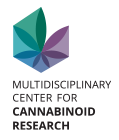Anecdotal evidence of successful cannabis treatment in children with autism spectrum disorder (ASD) are accumulating but formal studies are lacking. This retrospective study assessed safety, tolerability and efficacy of cannabidiol (CBD) based medical cannabis, as an adjuvant therapy, for refractory behavioral problems in children with ASD.In this study, 60 children with ASD (age = 11.8± 3.5, range 5.0-17.5; 77% low functioning; 83% boys) were treated with oral CBD and tetrahydrocannabinol (THC) at a ratio of 20:1. The dose was up-titrated to effect (maximal CBD dose -10mg/kg/d). Tolerability and efficacy were assessed using a modified Liverpool Adverse Events Profile, the Caregiver Global Impression of Change (CGIC) scale, the Home Situations Questionnaire–Autism Spectrum Disorder (HSQ-ASD) and the Autism Parenting Stress Index (APSI). Following the cannabis treatment, behavioral outbreaks were much improved or very much improved (on the CGIC scale) in 61% of patients. The anxiety and communication problems were much or very much improved in 39% and 47% respectively. Disruptive behaviors, were improved by 29% from 4.74±1.82 as recorded at baseline on the HSQ-ASD to 3.36±1.56 following the treatment. Parents reported less stress as reflected in the APSI scores, changing by 33% from 2.04±0.77 to 1.37±0.59. The effect on all outcome measures was more apparent in boys with non-syndromic ASD. Adverse events included sleep disturbances (14%) irritability (9%) and loss of appetite (9%).Overall, this preliminary study support the feasibility of CBD based medical cannabis as a promising treatment option for refractory behavioral problems in children with ASD. A randomized placebo controlled trial with 150 participants based on this study is ongoing.
HOME / | Cannabidiol-Rich Cannabis in Children with Autism Spectrum Disorder and Severe Behavioral Problems—A Retrospective...
